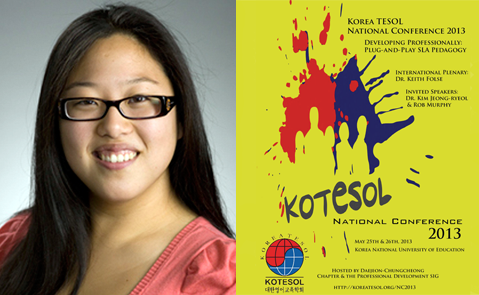
Mobile Phones in English Education
Ms. Juanita Hong
Abstract
Smartphones have now become a widespread phenomenon for people to connect and communicate, which can benefit language learning tremendously due to its convenient size and availability, especially in South Korea and with the use of the smartphone application, KakaoTalk. KakaoTalk is a free mobile messenger application that includes text, call, media sharing, URL links, and even voice messages. Although the students in South Korea have been studying English for several years and have intermediate proficiency levels, they continue to struggle with their fluency. By making use of their smartphone skills, it may be able to help with this problem. Two articles were explored to discover the methods relating to the use of mobile phones in English education. The first article, Thornton and Houser (2005), went into the culture of Japan, one of the most advanced technological countries in the world to study the use of mobile phones at one of the university English courses. The second article, Lu (2008), is a follow up study to Thornton and Houser, going into depth on vocabulary skills and it’s benefits in the mobile phone world through the eyes of Taiwanese high school students.
Thornton and Houser (2005) mentions that “in many educational institutions around the world, the amount of class time is limited,” (p. 218) which is often true in South Korea as well, for example, students on average meet with their teachers only twice a week and for less than an hour each class. The amount of time students spend on their smartphones, if they use that same amount of energy on their English skills, its possible that these tools could offer opportunities for improvement with the proper guidance. Therefore, for two weeks and on a daily basis, I had used KakaoTalk's voice messaging function with one of my students. The voice message is a walkie talkie type of function, allowing a limit of 1-minute per message. The results revealed that the student became highly motivated, learned how to detect intonation skills, and began to increasingly send more messages as time went on. It's fair to say that this does not prove or reveal the improvement of someone's language fluency or accuracy, but it definitely proves an alternative for a student to engage in a conversation, make use of their speaking skills, and more importantly, constantly be motivated.
Bio-sketch
I was born in São Paulo, Brazil and grew up in the New York metropolitan area. Korean by blood, Brazilian by birth, and American by residence, I graduated from the State University of New York at Buffalo on May 2007 and received a Bachelor of Arts degree in Communication, Psychology, and English.
While attending University at Buffalo, I began my teaching experience by becoming a teacher's assistant and eventually chosen to be part of a leadership program called, "New Student Programs", to teach and aid the incoming freshmen students. This experience triggered my passion for teaching and from that point on I have explored teaching college and adult students for several years in America and South Korea.
I am currently a student at Sookmyung Women's University in Seoul, South Korea, studying applied linguistics and TESOL in the TESOL master's program. My goal is to reform the education system in South Korea and continue my passion for teaching English to adult students at various universities abroad.


